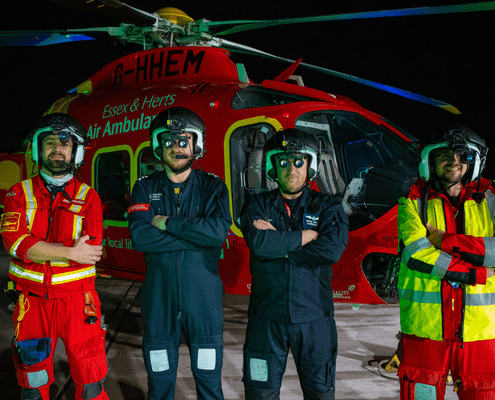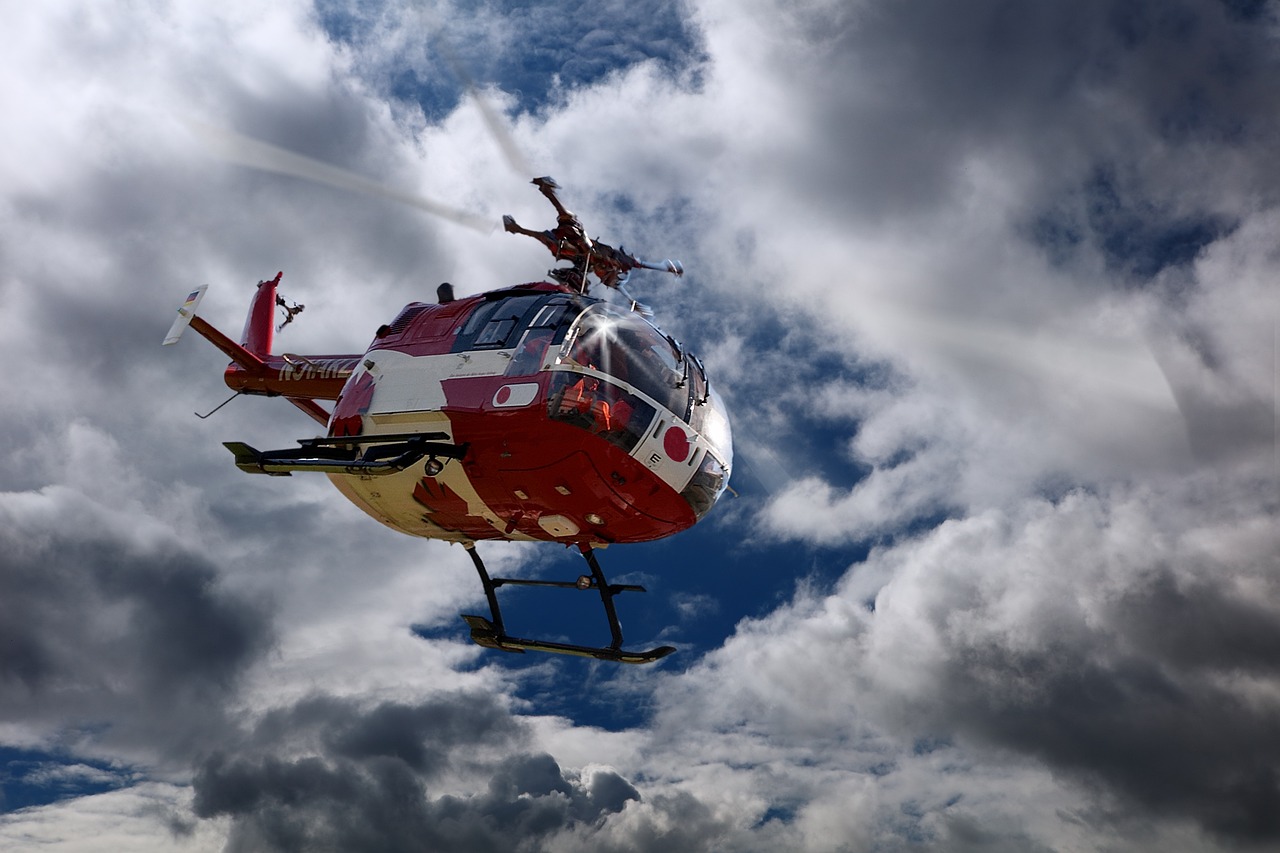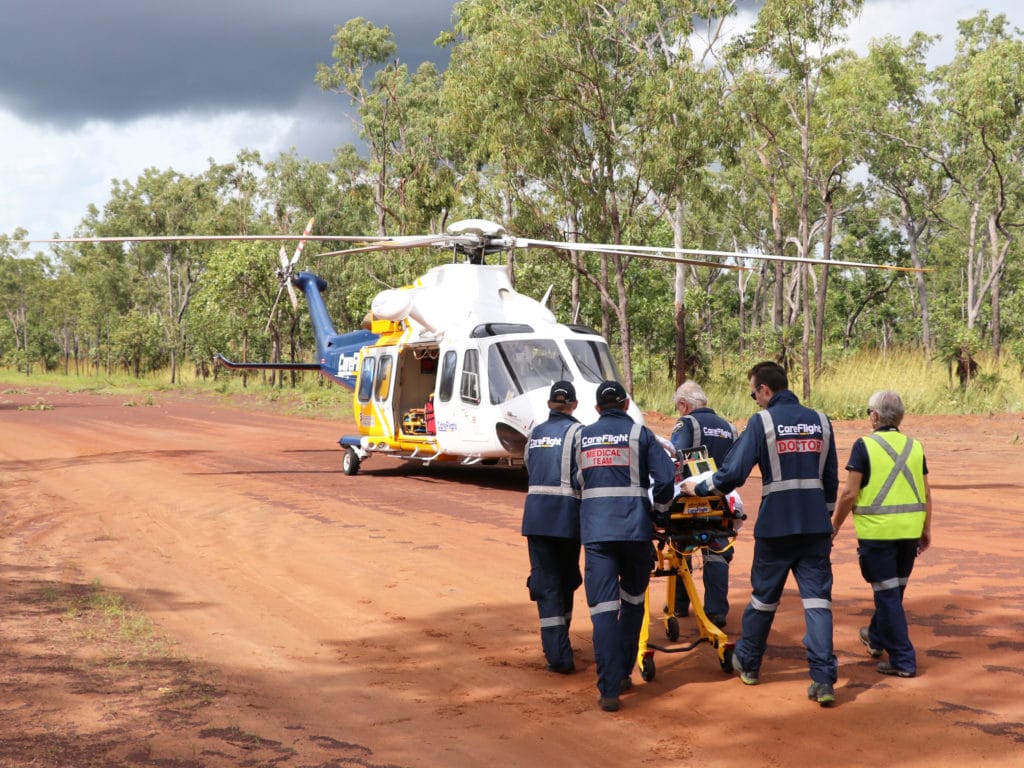So you’re curious about the people who make air ambulance operations possible, huh? Well, buckle up because I’m about to give you the inside scoop. When it comes to getting patients safely from point A to point B in the air, it’s not just the pilots doing all the work. Nope, there’s a whole team of dedicated professionals behind the scenes making sure everything runs smoothly. From the medical crew who provide lifesaving care in the air, to the dispatchers coordinating every detail, and the maintenance crew keeping those aircraft in tip-top shape – it takes a village, my friend. So let’s take a closer look at who’s on board the air ambulance team and how they work together to save lives.
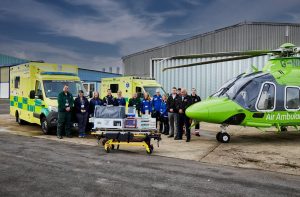
Pilots
When it comes to air ambulance operations, one of the key roles is that of the pilots. These highly skilled professionals are responsible for safely transporting patients from one location to another. They must have excellent hand-eye coordination, quick decision-making skills, and the ability to stay calm under pressure. Additionally, pilots must hold a commercial pilot’s license and have a minimum number of flight hours in order to qualify for air ambulance operations.
To become a pilot for air ambulance services, individuals are required to go through rigorous training. This includes completing a flight school program, passing written and practical exams, and obtaining the necessary certifications. In addition, pilots must undergo specific training related to air ambulance operations, including familiarization with medical equipment and procedures.
Experience is a vital aspect of being a pilot in the air ambulance industry. Pilots must have a significant amount of flight hours under their belt, as well as experience flying in various weather conditions and terrain. This level of expertise ensures that they can handle any challenges that may arise during an air ambulance mission.
Flight Nurses
Flight nurses play a crucial role in air ambulance operations. These medical professionals are specially trained to handle the unique challenges that come with providing medical care in a high-altitude, fast-paced environment. Their primary responsibility is to provide medical treatment and ensure the well-being of patients during air transport.
To become a flight nurse, individuals must have extensive experience and qualifications. They typically have a background in critical care or emergency nursing, with additional training in flight nursing. Flight nurses must be certified in Advanced Cardiac Life Support (ACLS) and Pediatric Advanced Life Support (PALS), as well as possess knowledge in trauma care.
Flight nurses also need specialized medical skills to effectively care for patients in the air. This includes proficiency in managing patients with various medical conditions, administering medications, and providing advanced life support. They must be able to think quickly and adapt to the unique challenges that arise during air transport.
Flight Paramedics
Flight paramedics are an essential part of the air ambulance team. These highly skilled professionals are responsible for providing advanced medical care and stabilizing patients during air transport. They work closely with flight nurses to ensure the best possible outcome for patients.
To become a flight paramedic, individuals must have a strong background in emergency medical services. They typically have experience as paramedics or in the field of emergency medicine. Flight paramedics undergo specialized training to prepare them for the unique challenges of air ambulance operations.
One of the key qualifications for flight paramedics is their advanced life support skills. They must be proficient in a range of medical procedures, including intubation, chest tube insertion, and advanced cardiac life support. These skills are necessary to provide critical care to patients during air transport and ensure their stability throughout the journey.
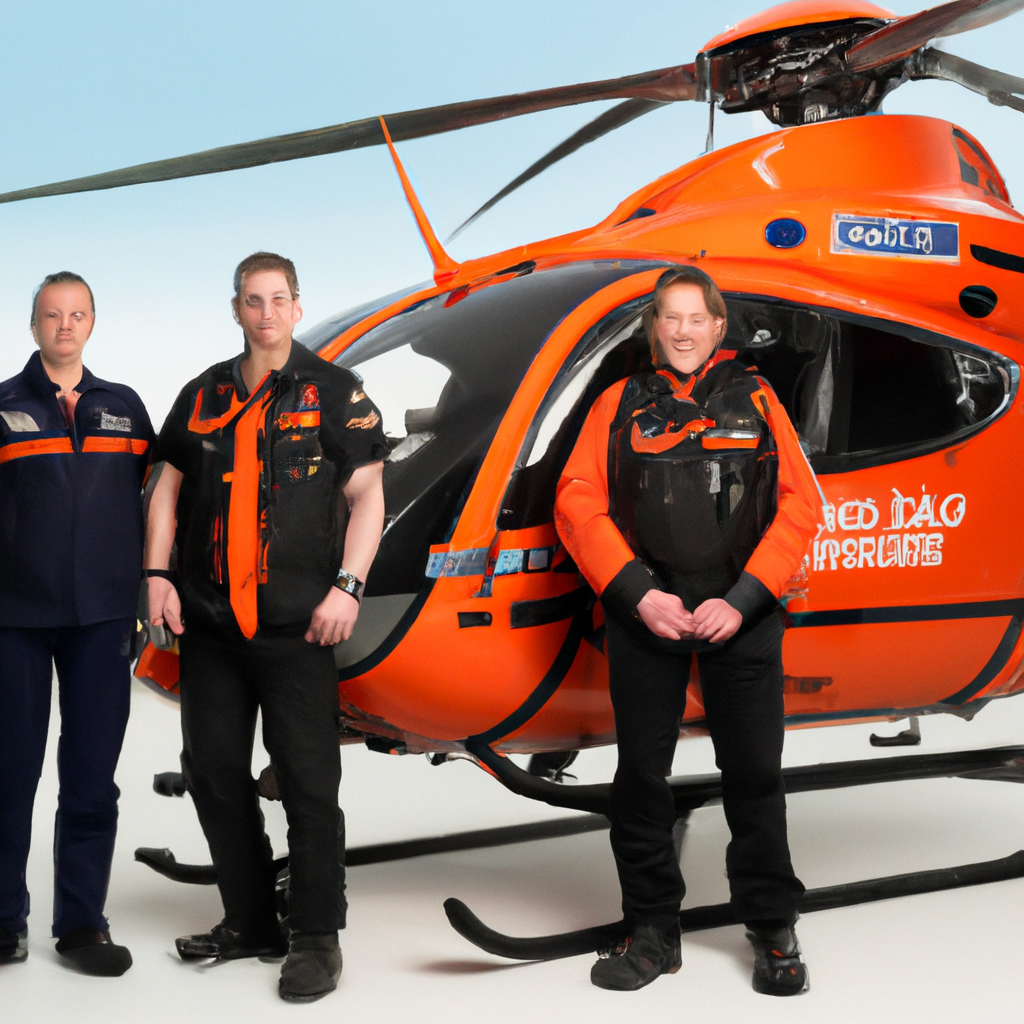
Medical Dispatchers
Behind the scenes of air ambulance operations, medical dispatchers play a vital role in coordinating flights and ensuring effective communication between the aircrew and medical personnel on the ground. These skilled professionals are responsible for dispatching aircraft in response to medical emergencies and coordinating details such as landing zones and patient transfers.
To become a medical dispatcher, individuals must have a strong background in emergency medical services or dispatch operations. They typically undergo specialized training to develop the necessary skills for managing high-stress situations and coordinating complex logistics.
Effective communication and coordination are essential skills for medical dispatchers. They must be able to quickly gather important information from various sources and relay it accurately to the flight crew and medical personnel on the ground. Their ability to multitask and make critical decisions in a fast-paced environment is crucial to the success of air ambulance operations.
Aircraft Maintenance Crew
The aircraft maintenance crew plays a pivotal role in air ambulance operations by ensuring that the aircraft used for medical transport are in optimal condition. These skilled technicians are responsible for conducting regular inspections, performing maintenance tasks, and repairing any mechanical issues that may arise.
To become a member of the aircraft maintenance crew, individuals must have the necessary qualifications and training. They typically go through a formal aviation maintenance program or apprenticeship and obtain the necessary certifications and licenses.
Ensuring airworthiness is a top priority for aircraft maintenance crew members. They must have a comprehensive understanding of aircraft systems, avionics, and mechanics to identify and address any potential issues. Their expertise and attention to detail ensure that the aircraft used in air ambulance operations are safe and reliable.
Medical Directors
Medical directors play a crucial role in overseeing the medical operations of air ambulance services. These experienced physicians provide clinical guidance, quality assurance, and ensure adherence to medical protocols and standards. They play a vital role in ensuring patient safety and care during air transport.
To become a medical director for air ambulance operations, individuals must have extensive experience and qualifications in emergency medicine and critical care. They typically have a background in emergency medicine and have obtained board certification in a relevant specialty.
Medical directors are responsible for overseeing all aspects of medical operations, including developing and implementing medical protocols, reviewing patient care records, and providing guidance to the medical staff. Their expertise and oversight are instrumental in maintaining high standards of medical care during air transport.
Transport Coordinators
Transport coordinators play a crucial role in the planning and logistics of air ambulance operations. These professionals are responsible for coordinating the transportation of patients, ensuring appropriate resources are available, and arranging the necessary arrangements for each mission.
To become a transport coordinator, individuals must have strong organizational and logistical skills. They typically have a background in healthcare administration or emergency medical services. Additionally, they undergo specialized training to develop the necessary skills for coordinating complex medical transport operations.
Planning and logistics are key responsibilities for transport coordinators. They must carefully consider factors such as patient needs, aircraft availability, and geographical considerations to ensure the smooth execution of each transport. Their attention to detail and ability to handle multiple tasks are crucial to the success of air ambulance operations.
Communication Specialists
Communication specialists play an essential role in air ambulance operations by ensuring effective communication between the aircrew, medical personnel, and ground-based teams. They provide round-the-clock support and act as a critical link between all parties involved.
To become a communication specialist, individuals must have excellent communication and customer service skills. They typically undergo specialized training to develop their abilities in managing high-stress situations and using communication systems effectively.
Communication specialists must be available 24/7, ready to handle any emergency or request that comes their way. They must be able to quickly and accurately relay information, coordinate resources, and provide support to the aircrew and medical personnel. Their ability to effectively communicate in high-pressure situations is crucial to the success of air ambulance operations.
Administrative Support Staff
Behind the scenes of air ambulance operations, administrative support staff play a crucial role in managing the day-to-day operations. These professionals handle tasks such as record-keeping, scheduling, and ensuring compliance with regulations and policies.
To become a member of the administrative support staff, individuals must have strong organizational skills and attention to detail. They typically have a background in healthcare administration or office management.
Record-keeping and scheduling are key responsibilities for administrative support staff. They must maintain accurate and up-to-date records, manage schedules for aircrew and medical personnel, and ensure compliance with various regulations and policies. Their meticulousness and ability to handle multiple tasks are instrumental in supporting the smooth operation of air ambulance services.
Conclusion
In the world of air ambulance operations, there is a diverse and specialized team working together to ensure the safe and efficient transport of patients. Pilots, flight nurses, flight paramedics, medical dispatchers, aircraft maintenance crew, medical directors, transport coordinators, communication specialists, and administrative support staff all play crucial roles in this process.
Whether it’s the skilled pilots who navigate the skies, the experienced medical professionals who provide critical care, or the dedicated support staff who handle logistics and coordination, each member of the air ambulance team contributes to the overall success and effectiveness of air ambulance operations.
Through their qualifications, training, skills, and coordination, these professionals work together as a cohesive unit to provide life-saving assistance to those in need during air transport. Their collective efforts ensure that patients receive the highest quality of care and support throughout their journey, making air ambulance services an invaluable resource for medical emergencies.
